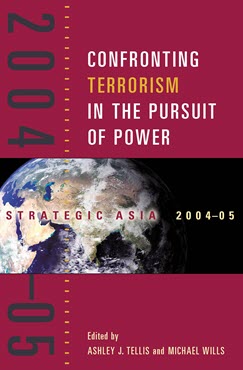China
Exploiting a Strategic Opening
While the global war on terrorism has been accompanied by heightened U.S. trends toward unilateralism and pre-emptive military action, the shift in U.S. foreign policy priorities since September 11 has allowed China to continue and deepen the pursuit of its reform era security strategy.
While the global war on terrorism has been accompanied by heightened U.S. trends toward unilateralism and pre-emptive military action, the shift in U.S. foreign policy priorities since September 11 has allowed China to continue and deepen the pursuit of its reform era security strategy. The war on terrorism has presented China with a “strategic opening” to strengthen its relations with the United States—not least by assisting Washington in combating terrorism and by more pro-actively dealing with North Korea. Beijing has also enhanced its strategic position in Asia by improving relations with South Korea, Japan, and ASEAN. Nevertheless, the war on terrorism has not altered some fundamental and potentially destabilizing features of China’s external environment, most notably those with regard to Taiwan. Altogether, these trends hold potentially mixed implications for the Sino-U.S. relationship, and Washington should actively reach out to countries in the region in order to demonstrate that its presence and commitments in Asia are not declining.
Strategic Asia
The Strategic Asia annual edited volume incorporates assessments of economic, political, and military trends and focuses on the strategies that drive policy in the region. Learn more about Strategic Asia.


